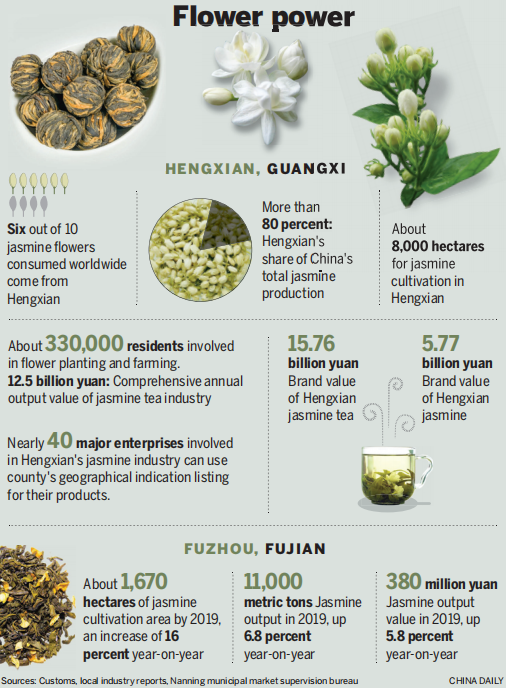Primed for new growth

Flower power CHINA DAILY
"The workers can cash in their buds more efficiently," Li said. "We're also getting good returns from running the center, which can contribute to the development of the industry as a whole."
In Fuzhou, the geographical listing draws on a long tradition of jasmine tea production. The city was one of the tea trading hubs of China by the late Qing Dynasty (1644-1911), accounting for more than one-third of the country's total tea exports, with jasmine tea forming the bulk of the trade, according to industry records. The city registered nearly 1,000 enterprises involved in jasmine tea production by the late 1990s, according to local government figures.
Jasmine cultivation areas in Fuzhou grew to cover about 1,670 hectares by 2019, an increase of 16 percent year-on-year. The city recorded jasmine output of 11,000 tons in 2019, up 6.8 percent year-on-year, with output value at 380 million yuan, an increase of 5.8 percent year-on-year.
Amid the rapid diversification of products, production areas and brands, Fuzhou's jasmine tea sector has continued to achieve notable growth, riding on its "traditional handmade tea's market position", according to the China Tea Marketing Association.














